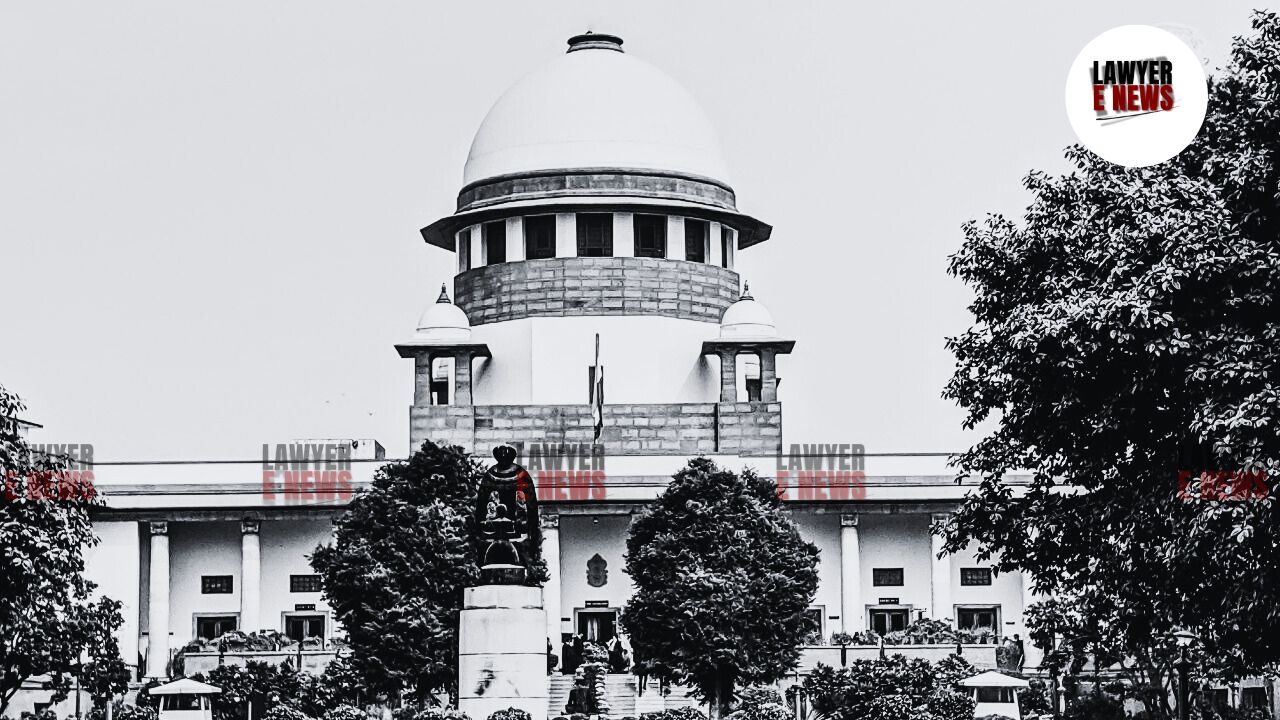-
by Admin
15 February 2026 5:35 AM



Supreme Court Mandates Hygienic and Inclusive Toilet Facilities in All Court Premises Across India. Supreme Court of India delivered a landmark judgment addressing the deplorable state of toilet facilities in courts and tribunals across the country. The Court directed all High Courts and State Governments to construct and maintain separate, accessible, and hygienic toilets for men, women, transgender persons, and persons with disabilities (PwDs). It also mandated regular maintenance and monitoring of these facilities to ensure compliance with constitutional and statutory obligations.
Judgment Recognizes Toilets as a Constitutional Right Under Article 21
The Supreme Court emphasized that the right to life under Article 21 of the Constitution includes access to hygienic and functional sanitation facilities. It stated:
"Courts should not be places where basic needs, such as sanitation, are overlooked or neglected. The absence of adequate washroom facilities undermines equality and poses a barrier to the fair administration of justice."
Invoking Articles 47 and 48A of the Constitution, the Court observed that providing sanitation facilities is an obligation of the State to promote public health and maintain a clean environment.
The writ petition was filed by Advocate Rajeev Kalita under Article 32 of the Constitution as a Public Interest Litigation (PIL). The petitioner highlighted the lack of adequate and accessible toilet facilities in court complexes across India, particularly for women, PwDs, and transgender persons. He argued that the existing facilities were poorly maintained, inaccessible, and often unusable, violating the right to dignity and hygiene under Article 21.
The petitioner relied on precedents, including Vincent Panikurlangara v. Union of India (AIR 1987 SC 990) and National Legal Services Authority v. Union of India (2014) 5 SCC 438, to assert that sanitation is a fundamental right integral to human dignity.
"Toilets Are Not a Privilege but a Right Integral to Human Dignity"
The Court reiterated that the denial of clean and accessible toilets violates the right to dignity under Article 21. It stated:
"The failure to provide adequate washroom facilities is not just a logistical issue but reflects a deeper flaw in the justice system. Courts must lead by example in upholding human rights and dignity."
"Separate and Inclusive Facilities for Transgender Persons Are Mandatory"
Quoting the National Legal Services Authority v. Union of India case, the Court underscored that transgender persons face severe discrimination due to the lack of separate toilets, leading to harassment and exclusion. The judgment directed the creation of gender-neutral and clearly marked washrooms for transgender persons.
"Global Best Practices Should Inform India's Approach"
The Court examined international benchmarks, including Singapore's Happy Toilet Programme and Japan’s Universal Toilet Initiatives, and urged Indian courts to adopt eco-friendly and inclusive designs.
Directives Issued by the Supreme Court
The Court issued comprehensive directions to address the crisis:
Construction of Toilets
High Courts and State Governments must construct separate and accessible toilets for men, women, transgender persons, and PwDs in all court premises within four months.
Maintenance and Monitoring
Committees chaired by High Court Judges must be constituted to monitor toilet construction, maintenance, and fund utilization. Regular cleaning and maintenance must be outsourced to professional agencies.
Accessibility for PwDs
Install ramps, tactile pavements, and other accessibility features in court complexes. Ensure functional amenities like handrails and grab bars in toilets for PwDs.
Sanitary Facilities for Women
Provide sanitary napkin dispensers and waste disposal facilities in women's toilets. Install child-safe washrooms and breastfeeding rooms in family courts.
Transparency and Accountability
Allocate separate funds for toilet construction and maintenance, and publish annual audit reports. Create grievance redressal mechanisms to address issues promptly.
Eco-Friendly Toilets
Use environment-friendly technologies like bio-toilets and adopt modular designs for old court buildings.
Compliance Reports
High Courts and State Governments must file compliance reports within four months.
This ruling marks a significant step towards improving judicial infrastructure in India, ensuring that court premises are accessible, inclusive, and hygienic for all stakeholders. By affirming sanitation as a constitutional right, the judgment paves the way for broader reforms in public health and infrastructure.
Date of Decision: January 15, 2025
